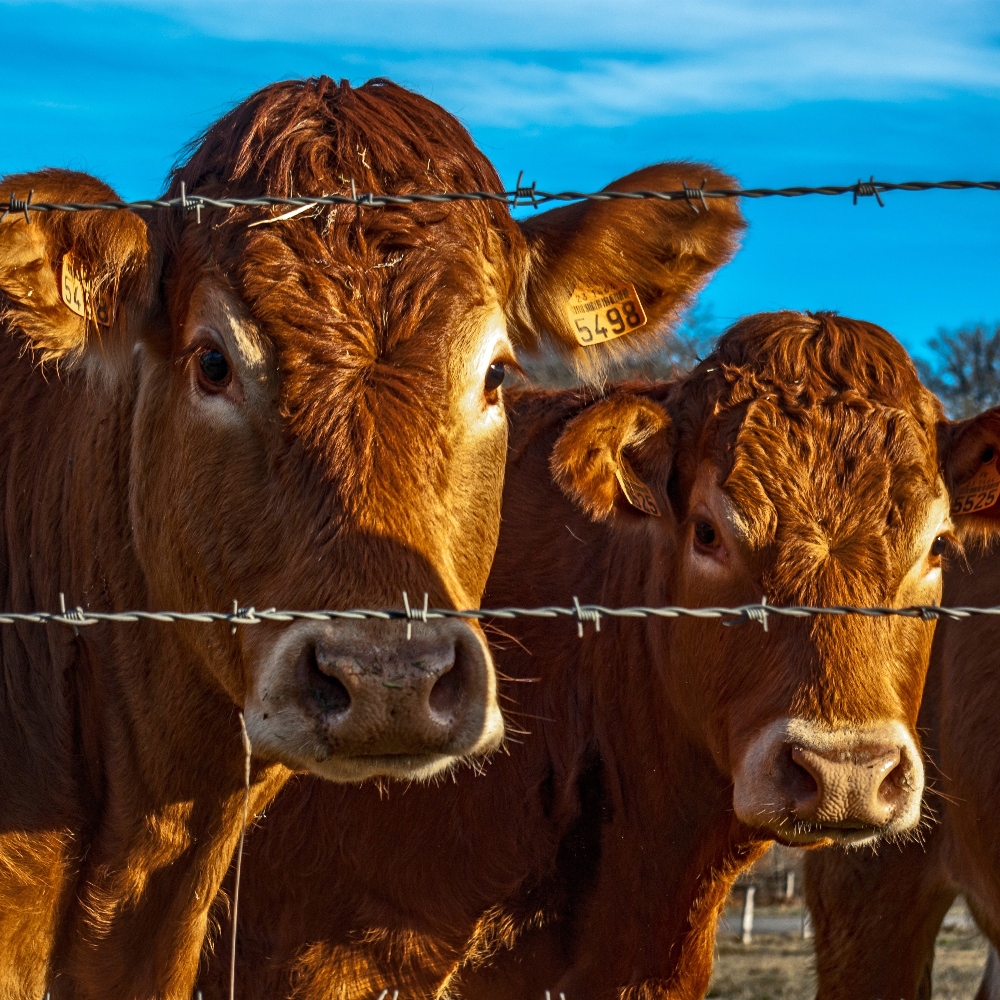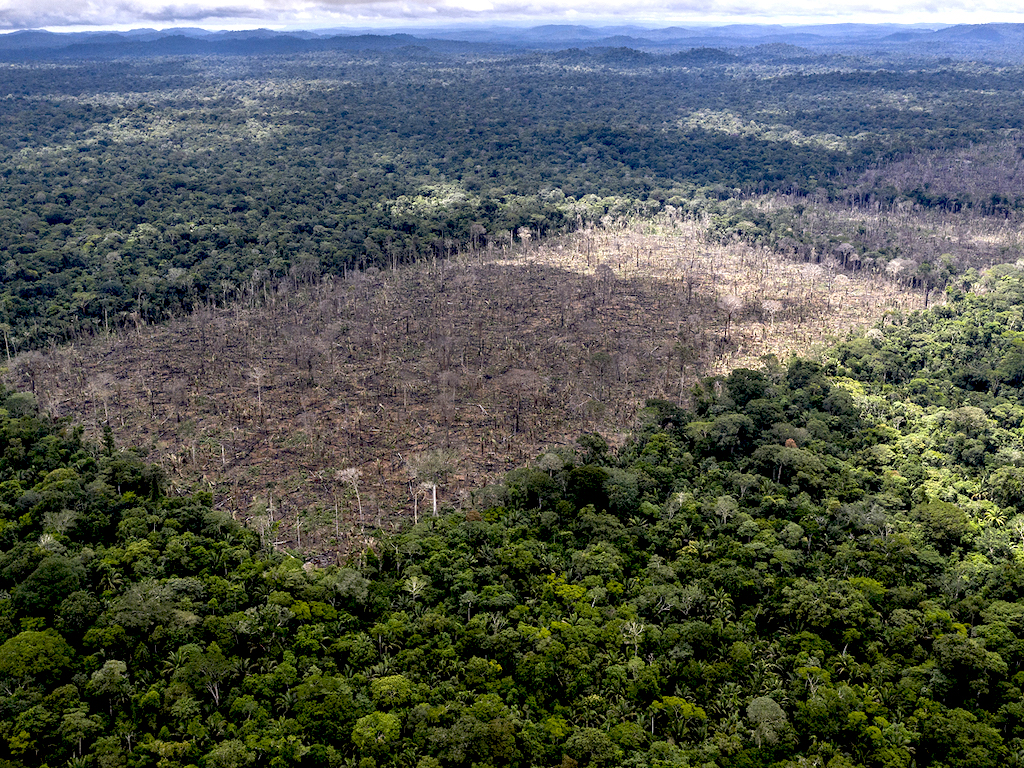11 Mins Read
An interview with Chloe Sorvino, financial journalist, Forbes Food & AG editor and author of Raw Deal: Hidden Corruption, Corporate Greed, and the Fight for the Future of Meat, a new book that takes an in-depth investigative look into the mafia-like world of Big Meat in the US.
Sorvino’s book is particularly relevant given the industry’s reckoning during Covid-19 when supply chains were so broken that meat supermarket shelves were empty and slaughterhouse workers found themselves in dire conditions, not to mention the ever-growing link between meat consumption and the climate crisis. Raw Deal is a shocking and page-turning read that exposes the many ills that plague neat corporations in the US, including price-fixing, elite power grabs and a systemic lack of transparency, with NYU Professor of Nutrition Marion Nestle calling it “a must-read for anyone who cares about where our food comes from”.
Sorvino talks to Green Queen‘s Sonalie Figueiras about what surprised her most whilst researching the book, whether consumers have any choice when it comes to the meat they buy, what role alt protein can play in the future of meat and why regional supply chains are key for food security.
What surprised you most whilst researching this book?
Chloe Sorvino: Even though hoards of startup founders are drooling over the idea of dethroning industrial meat, the top meatpackers continue to control massive amounts of power and profits, at the detriment of producers and consumers. Business is booming, while we are running out of time to solve the problems of today’s meat industry — even though it’s crucial that meaningful gains for more accessible and wholesome protein are made before the end of the decade. The climate clock is ticking. Industrial meat is already responsible for irreversible damage, and the system which produces America’s meat, as is, needs an overhaul. Community-based solutions need a chance to work out the operational kinks before systems are further put to the test as the planet warms more.
A lot of the book is about this connection between meat, politics, power and profit. Can you talk more about this?
Chloe Sorvino: The meat industry has amassed power and profits and has even minted billionaires while funding lobbying that makes it harder for independents to compete, as well as against regulations that aim to prevent environmental destruction.
Yet, the systems of production underpinning the meat industry have harmed the long-term health of the communities, often Black, Latinx or Indigenous, who live near part of the meat supply chain. At the same time, there’s persistent hunger, antibiotic resistance, soil erosion and water pollution spreading. Workers are put in harm’s way, and animals live in inhumane conditions. In a world where industrial meat passes the costs down the line, someone along the way pays the price.
If you could remake the protein industry from scratch, what would you prioritize?
Chloe Sorvino: Regional supply chain networks that support the communities surrounding them. That means infrastructure built so that traditional techniques — which require less processing and additives — can thrive from a network of local purveyors and producers. That would be for plant-based foods and preserving regional grains, tubers like potatoes and mushrooms, as well as for meat products from pasture-raised farms in the area. I’d prefer the meat to be a small amount of total production, and for the farms that exist to focus on reinvigorating land degraded by industrial agriculture and decades of monoculture. There’s a whole host of specifications I’d like to see these operations adhere to, from adaptive grazing to no antibiotics used. I’d also prioritize repurposing subsidies, along with systems of production and distribution, to create a public food sector that would help communities withstand crisis, and especially climate-inflicted crises. The bottom line is that livestock operations of confinement, pollution and antibiotics use must come to an end.

After reading your book, it’s hard not to wonder: how does a consumer navigate all these power plays and systemic issues? Do consumers have any real choice at all? How can a consumer be a “good meat” activist?
Chloe Sorvino: It’s really hard, because there’s been so much green-washing. Even more than that, there’s been a lot of backers who have been obscured, as brands have changed owners and investors. Whole Foods Market, for example, has a completely different ethos under Amazon than it did two decades ago. That’s why the best way to navigate this complex food system is to focus on how many times your money goes through a layer before getting to the actual producer. Supporting a community-supported agriculture group, which may offer weekly or monthly farm box distributions in your neighborhood, is a great place to start. Or a co-op grocer. These types of membership-based organizations often require volunteering for a shift, and taking an active role in how you get your food helps to strengthen local communities. What we need are more collective impacts that can become the foundation of a food system that’s more democratic, healthier and safer, while having a better chance at withstanding a crisis.
Do we need to eat less meat? Is consumption reduction one of the major solutions going forward for you?
Chloe Sorvino: Absolutely. Global projections have meat demand increasing when it needs to decrease. Significantly. That’s why I address meatpacking executives gushing about demand increasing and global projections for meat rising early on in the book. There’s a massive disconnect between what industry and the financial institutions backing these corporations are working to achieve versus what needs to happen to decarbonize the globe. In Raw Deal, I tackle this question in the introduction head-on in my thesis, on page 9: “Far less meat needs to be consumed overall, and meat from cramped factories that pollute must come to an end.” This is teased apart more throughout the book, including, for example, in a key section on page 157, which discusses how the same amount of meat can’t be produced if all production were to switch to grassfed, and how an entirely grassfed beef sector would still increase methane emissions and have significant land trade-offs.
Big Meat has a major climate problem: emissions, land, water. How can the industry fix this?
Chloe Sorvino: To start off, stop trying to blindly pilot-test their way into the future. We need more transparency, more accountability, and less goals that have dates decades into the future. Most projects have such a tiny scale right now that it’s hard to imagine the company is doing it for much beyond marketing and the ability to point to an example to say, ‘we swear we are trying.’
In the U.S. particularly, there needs to be stronger environmental enforcement, on the federal level, but also the state and local level. Some regions have stronger air and water protections than others, but a lot of states where there’s a lot of farming are significantly lacking. The meat industry has lobbied directly for a lot of this.
It’s sadly ironic. This industry has reaped billions in profits as production has relied on chemically farmed corn and soybeans to be produced for animals’ feed. But climate change will make those crops harder to farm, as drought and extreme heat and weather hurt output. Warmer temperatures also make these crops less nutritious, while soil erosion and chemical degradation are going to make it impossible to grow food from some land. It’s a ticking time bomb, but the executives seem to only care about the short-term bottom-line gains.

What role do you see the alt protein industry playing in the greater food industry?
Chloe Sorvino: Alternative proteins have a significant role to play in the future of food. As World Resources Institute’s Richard Waite calculates with me in the book, if plant-based foods can take a significant bite out of total meat consumption, the impacts are big. Reaching 15% of total meat industry volume would be the equivalent of taking a quarter of all vehicles in the U.S. off the road. In the U.S., it’s still less than 1%. But the potential can’t be underestimated.
Yet the brands that have been commercializing these foods so far have been hurt by crazy expectations set by overzealous investors and the pressures from financial markets. There’s promise among the third-generation of startups, many of which are focusing on mycelium-based technologies. I also see promise in strengthening regional infrastructure so that locally sourced plant-based foods can better thrive from independent regional purveyors and compete against big food companies.
You write about the cultivated meat “power grab”. Do you think cultivated meat can be produced at scale? Do you think governments should underwrite the R&D for this (See Singapore, Israel, and potentially China)?
Chloe Sorvino: There are significant questions about whether meat produced from animal cells will be able to hit scale at a price point that is accessible. Costs are multitudes of what they would need to be to sell at a restaurant or grocery store. There’s also the question of the energy involved in fueling the labs that produce no-kill meat: In the U.S., renewable energy infrastructure is still quite limited and it seems these startups are banking on the government eventually transitioning the entire grid — which is a long way off. I question whether governments should underwrite the funding when the private sector has already invested billions, and accessible price points are still so far-off. I’d far prefer to see U.S. Farm Bill funding or other government support going to land access for underrepresented farmers and rebuilding local food infrastructure. If the government could ensure that funding this research would eventually help to create an open source code for cell-based meat that would eventually provide the foundation for regionally based production, like in a public food sector, I’d be far more optimistic.
You write about the foreign ownership of a lot of meat companies. Do you believe a certain % of national food suppliers should be local companies/locally owned entities? If only for reasons of national security?
Chloe Sorvino: National security is a broad term, and what researching for this book taught me was that mismatched interests, combined with uneven power dynamics, could be a perfect storm with devastating consequences. The national security risk to me is that there could eventually be major food insecurity, while foreign-backed meatpackers have proven they prefer to degrade environments where they are to make more profits and even export back home, often while putting workers in harm’s way. Consumption needs to decrease overall. The tale of Smithfield and its billionaire owner Wan Long is a cautionary tale in the book for that reason. The problem with foreign owners is that they simply have less incentive to care about the long-term environmental damage. It’s similar to how later on in the book, I write about Bill Gates being the world’s largest farmland owner and how he mostly rents out his land to corporations that aren’t organic or all that sustainable. The interests are not aligned to coalesce around major climate collaboration.

Looking ahead, what are you hopeful about when it comes to Big Meat and the food system?
Chloe Sorvino: I am realistic. What faces us is not pretty, and the climate crisis will continue to hurt those most vulnerable the most. But I am optimistic that there’s momentum to make significant change. And that’s desperately needed because irreversible damage has already been inflicted thanks to fossil fuels and the meat industry. Meaningful reform needs to take place before 2030 if we want any shot at having a say in what we eat when the climate crisis gets even worse.
A lot of the book’s analysis is very US-centric. Did you look at meat industries in other countries/geographies during your research? Were there any parallels?
Chloe Sorvino: Meat is so linked to American politics and the economy that, to make the argument that I wanted to make, the book had to focus on the U.S. market. But there are several stories of international billionaires featured in the book which I’ll note: the takeover of the American meat market by the Batista brothers in Brazil and the bribery scheme that fueled it; WH Group’s Wan Long, and why global demand rising is driving Smithfield to increase exports; German breeding giant EW Group, and the secretive billionaire Erich Wesjohann who I uncovered for Forbes.
A lot of what America’s meat market does then creates ramifications across other global markets. The influx of so-called better-for-you meat subscription box startups in the U.S. has actually driven an influx of cheap grassfed beef raised in Chile and other countries in South America, for example, to be imported in the country. I cover how that’s been hard for U.S. grassfed producers, who can’t compete with international prices. That’s just another pressure that makes it challenging for small-scale independents in America to thrive.
On the alt-protein side, I did a lot of research that ended up getting cut from the book about how Impossible couldn’t launch in China due to the regulations around its controversial ingredient, heme. That created an opening for Unilever’s brand there, while Beyond Meat opened up a factory in China. JBS is also heavily involved in the European plant-based market, while seemingly abandoning its line in the U.S.
Senator Cory Booker wants to stop taxpayer bailouts for Big Meat with his Industrial Agriculture Accountability Act. What’s your view on the bill? Does it go far enough?
Chloe Sorvino: It’s going to take a lot more than one bill in Congress. Sen. Booker has put forth a strong bill — especially to increase the legal responsibility among industrial meatpackers to pay up for their true costs and waste — which would be crucial as the climate crisis progresses. But he and others have put out a lot of bills in the past two years aiming at more transparency and accountability for the meat industry, and not much has actually come from any of them so far. With a divided Congress, it’s pretty unlikely that this latest bill will make it through to law — especially with the legal teeth intact. Momentum to build reform is important. But insuring that there is strong enforcement of any meat industry reform is just as key as securing the reform itself.
Raw Deal: Hidden Corruption, Corporate Greed, and the Fight for the Future of Meat by Chloe Sorvino is published by Atria Books ($28).
Lead image: Chloe Sorvino courtesy Nick Rice.





